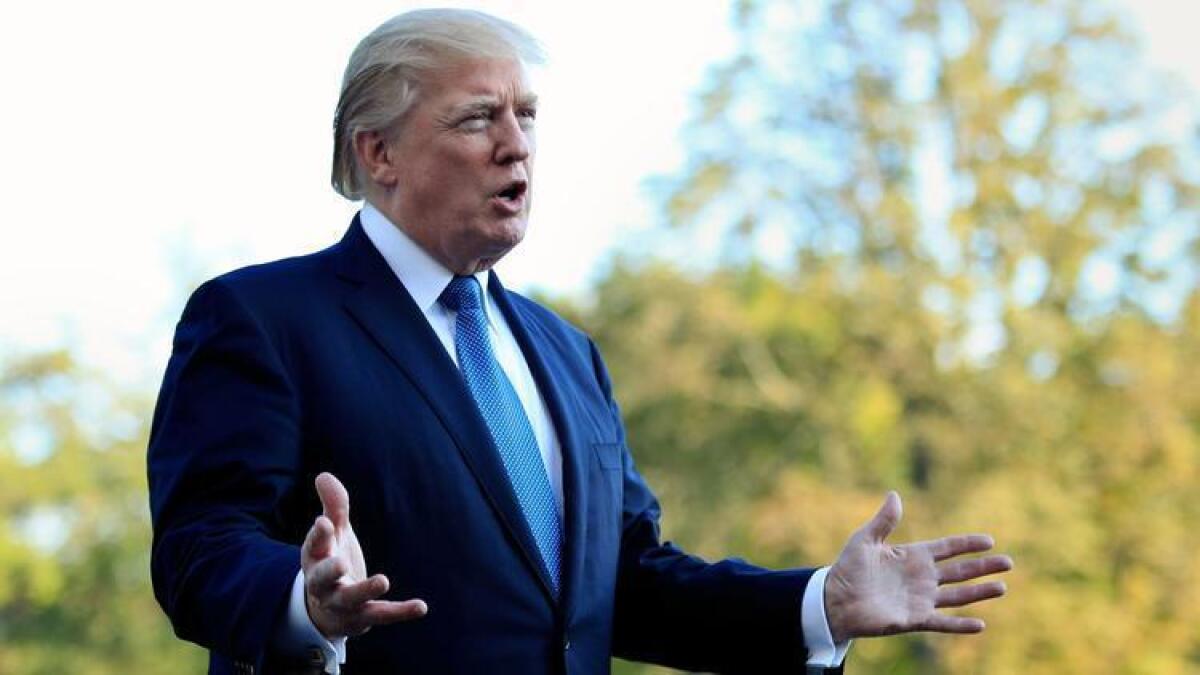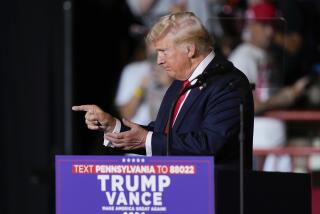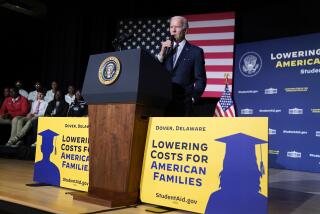Federal appeals court allows Trump’s travel ban for six Muslim-majority countries to partially go into effect

- Share via
A federal appeals court Monday partially revived President Trump’s travel ban on six Muslim-majority countries, allowing it to go into effect against people without a “bona fide” connection in the U.S., such as close family members.
The decision by the U.S. 9th Circuit Court of Appeals means that the federal government can start blocking travel into the U.S. by most nationals of Syria, Libya, Iran, Yemen, Somalia and Chad who lack family in the country.
The order partially reversed one from Honolulu-based federal judge Derrick K. Watson, who blocked nearly the entire ban on the grounds that it “plainly discriminates based on nationality.” Watson ruled on a lawsuit brought by the state of Hawaii.
The 9th Circuit decision is a temporary measure before judges hear arguments Dec. 6 over the government’s appeal of Watson’s ruling. A panel of three judges — Michael Daly Hawkins, Ronald M. Gould and Richard A. Paez — is considering the appeal. All were appointed by President Bill Clinton.
Trump signed his newest travel ban on Sept. 24 to indefinitely halt travel from most citizens of the six countries, but Hawaii- and Maryland-based federal judges issued orders stopping it just as it was about to go into effect in October.
Trump’s travel order also applied to North Koreans and certain Venezuelan government officials and their families, but judges allowed bans on those nationals to continue.
The 9th Circuit decision is a win for the Trump administration, which has struggled since January in three attempts to push similar travel bans that immigration advocates and federal judges have largely described as illegal.
Judges have said the president’s bans either violated immigration law or were unconstitutional in discriminating against Muslims. The Trump administration has argued in federal courts that the bans fall within presidential power and are needed to protect Americans from potential terrorism.
The U.S. Supreme Court briefly allowed a prior travel ban to go into effect over the summer as long as people with close family in the U.S. were exempt from it.
White House officials said the latest ban was written after an extensive review of vetting procedures for nations around the world. In a statement, the Department of Justice said it wanted the ban fully restored.
“We are reviewing the court’s order and the government will begin enforcing the travel proclamation consistent with the partial stay. We believe that the [travel ban] proclamation should be allowed to take effect in its entirety,” said spokeswoman Lauren Ehrsam.
In issuing its order Monday, the 9th Circuit said that foreign nationals who have “bona fide” U.S. connections cannot be blocked. The court said those included “grandparents, grandchildren, brothers-in-law, sisters-in-law, aunts, uncles, nieces, nephews and cousins” who live in the U.S.
Lawyers for the Trump administration will also argue a separate travel ban case on Dec. 8 in the U.S. 4th Circuit Court of Appeals. That appeal is over a decision by Maryland-based U.S. District Judge Theodore Chuang, who has also blocked the ban for people who do not have a “bona fide” U.S. connection.
Chuang wrote in October that Trump’s campaign trail comments about Muslims and his Twitter postings pointed to the ban being an unconstitutional example of discrimination against Muslims.
The Trump administration has vowed to take its case over the ban to the Supreme Court. If it does, it won’t be the first time. The administration was set to argue its prior travel ban in front of justices in October before the court dropped the case, saying it was moot because the prior travel ban in front of it — a temporary one — had expired.
Jaweed Kaleem is The Times’ national race and justice correspondent. Follow him on Twitter, Facebook and Instagram.
UPDATES:
3:10 p.m.: This article was updated with a statement from the Department of Justice.
This article was originally published at 12:10 p.m.
More to Read
Sign up for Essential California
The most important California stories and recommendations in your inbox every morning.
You may occasionally receive promotional content from the Los Angeles Times.











